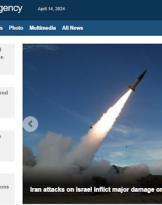According to some Italian institutional representatives, the new president of India should manage the fate of our two naval riflemen Massimiliano Latorre and Salvatore Girone with a "condescending" approach in the near future and return them to Italy in the short term.
Foreign Minister Mogherini reassures us from NY. In fact, at a press conference he informs us "I am personally involved with the president of the council and the defense minister, also because the months to follow will be crucial".
Optimism already revealed by President Renzi when, through the Ansa, he reported a phone call with Modi and that Rome has found a bank in the Indian Prime Minister who has agreed on the need to "maintain a close dialogue at all levels ".
Words that overlap with the thousands of expressions of reassurance that for nearly three years are being proponed by the Italian institutional leaders after the absurd decision of the Monti government to send them back to India on 22 2013 in March.
The only results obtained so far are those of having managed to get Massimiliano Latorre to spend a period of convalescence in Italy after the serious illness that hit him, and that Salvatore Girone continues to stay in India, living alone the days with stress. and the anxiety of the case. Meanwhile, the Indian courts demonstrate how Indian legal culture is to postpone hearings rather than decide.
Moreover, the great faith in Modi revealed in Italy at the institutional level and also by important national media, contrasts with the approach taken by the European Union and the USA towards Narenda, which is always regarded with suspicion and sanctioned over the of its militancy.
But who was he really?
Narenda Modi has always been a very controversial figure. As a young man he was a member of the far-right Indian party RSS, ready to accept the support of Hindu extremists during the election campaign, now allies of his nationalist BJP party.
He has always been very ambiguous and pragmatic even in the face of serious evidence, such as the murder of about 2000 people, Muslims and Christians, which took place in 2002 in Godhra, in the state of Gujarat, of which he was governor.
On that occasion he said: "I have never heard of it", thus arousing the reaction of the EU and the US, who called it "unwelcome person".
Controversial figure that perhaps only our prime minister looks with expectation when he said he was "very confident in the new Indian government", perhaps forgetting that, instead, during the election campaign Narenda Modi accompanied the promises of economic miracles with the intention of using his fist of iron against our marines.
Forced rehabilitated in the eyes of the EU and the US after his election as president of India, Modi's past, however, suddenly returns to the limelight: a federal court in New York has issued a subpoena to the Prime Minister of India accusing it of violating human rights and genocide against Muslim minorities.
The Ansa from NY informs us that the New York Times has given news of the formalized measure after a complaint filed by two Indian citizens residing in the US for the events of 2002 in which the Indian premier governor of Gujarat is indicated as "responsible for murder," organized violence and large-scale forced evacuation "against the Muslim minority population.
At the time, however, the New York Times recalls, the United States also said it was convinced of Modi's responsibilities, to the point that in 2005 they refused him a visa to enter the country.
It is therefore natural to ask ourselves, as Italians, how reliable and decisive the role of Modi can be in the affair of our marines, hostage to India for over 900 days.
Perhaps the prime minister, the foreign minister and the defense minister could still explain this, and they still reassure that they have prepared the documents to start an international arbitration but prefer to first go the way of a diplomatic solution, even though Modi himself stated that " Indian justice is free, just and independent ".
Therefore, the question arises as to whether it is not risky to continue to follow the path of dialogue with a counterpart presided over by those who, faced with an ethnic-religious massacre that took place in the state that governed, had to declare "I have never heard of it", arousing the reactions from the US and the EU.
Fernando Termentini
(in the picture the Indian president Modi with the Italian Ambassador Mancini)












